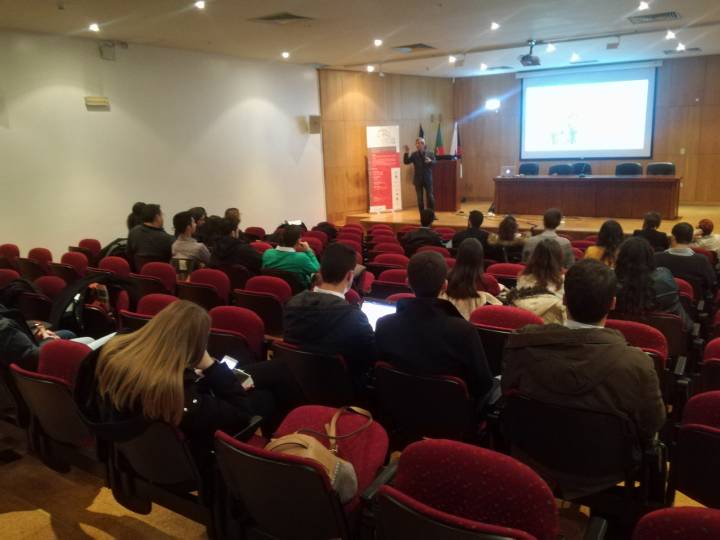Policymakers in the EU believe that Entrepreneurship Education (EE) programs are a good way to improve the entrepreneurship levels of the regions worldwide.
It is argued in the academic literature that EE can help countries promote entrepreneurial behaviours and mindsets, increase skills and abilities to create firms, and influence entrepreneurship rates. However, these programs can also make students perceive too many risks, responsibilities and financial burdens associated with starting a business. Universities should play a key role in preparing students to face challenges by creating and fostering EE programs.
Having in mind this context, the Iberian CEBT – Technology-based Entrepreneurship course was created. This is an advanced training program in entrepreneurship, integrated in the INESPO III project (Innovation Network Spain-Portugal), oriented to the creation of technology-based firms (TBF’s) in Centre region of Portugal and Castilla y León, in Spain. Particularly, TBF’s are based on the concept of opportunity, associated with higher levels of innovation and value generation, having a greater impact on growth and development, in both regions.
The Iberian CEBT has a total of nine editions, being coordinated by the University of Beira Interior. Besides this university, other Iberian universities have been participating in theses several editions (e.g., Coimbra, Aveiro, Salamanca, Pontificia de Salamanca, Valladolid and León). The main aim of this EE program is to identify new business ideas emerging in universities, laboratories and research centres involving new technologies, new products and patents.
Thus, students were encouraged to create multidisciplinary teams of six elements and attend the course, creating your own business plan and simulating starting a business. The Iberian CEBT has the duration of ten weeks and comprises four workshops on business topics imparted by professors, four mentoring sessions, and one coaching session, carried out by consultants and entrepreneurs. Finally, there is a final national event l and also a final Iberian event, in which the winners from each university take part.
A study conducted by Raposo, Madeira, and Nave (2018) showed that this EE program allowed to increase the entrepreneurial intentions of Portuguese and Spanish students (65%), resulting in the creation of some start-ups (e.g., Follow Inspiration, Inklusion Entertrainment and Geogreen Plus, all from the University of Beira Interior).
Additionally, this EE program had other beneficial effects on students, namely, instilling more entrepreneurial mindsets for their lives and careers, better perceiving market opportunities, evaluating business ideas, learning how to develop business plans, and learning the steps to start a company. The vast majority of participants in the Iberian CEBT, were essentially non-business students, having their first experience within business areas.
Raposo, M., Madeira, M.J., Nave, E. (2018). Impacto dos programas de educação para o empreendedorismo no aumento da intenção empreendedora. CIEM – Iberian Conference on Entrepreneurship (Universidad de Salamanca).
Sources:
Raposo, Madeira e Nave (2018). Supporting new firm’s through Entrepreneurship Education: a case of a successful course, European Conference on Innovation and Entrepreneurship, 19, 627-634
Raposo, Madeira e Nave (2018). Impacto dos programas de Educação para o Empreendedorismo no aumento da Intenção Empreendedora, CIEM – Iberian Conference on Entrepreneurship, Salamanca

